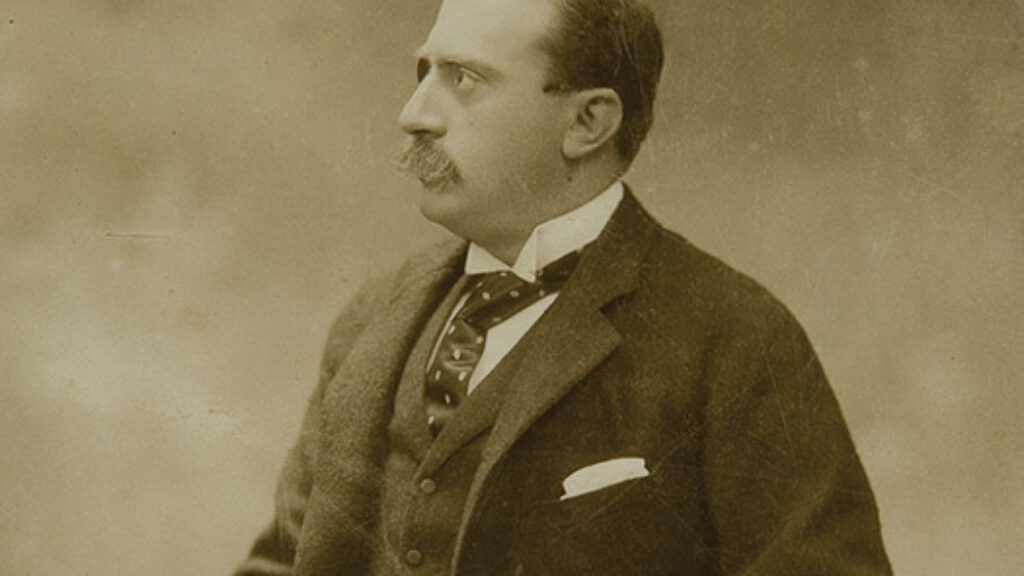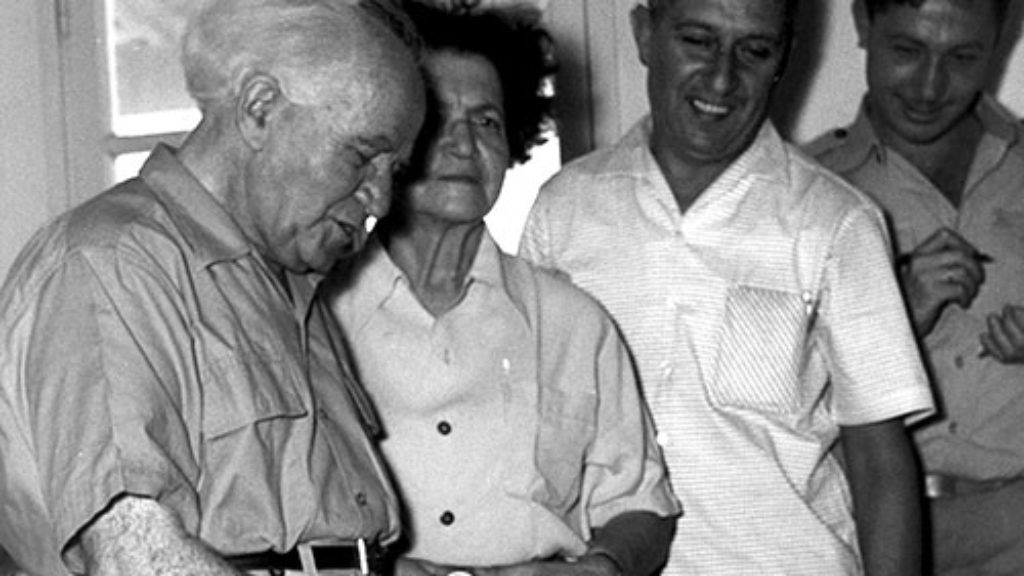Conservative Judaism Is Too Important to Fail
Though I disagree with his prediction of imminent doom, I must admit I largely agree with Daniel Gordis’s critique of what the Conservative movement has gotten wrong. In fact, his assessment may have been too kind. Fearful of Orthodox approbation and losing members if we took a stand, we simply lacked confidence in ourselves and faith in the God of our ancestors. We failed to fully embrace what we know to be right and good, whether it is Sabbath observance and Torah study among our parishioners or egalitarian ritual observance and gender equality in all our institutional arms, including our schools, camps, and youth groups. Perhaps worse, commitment to intellectual honesty, or perhaps discomfort with non-rational spirituality, led us to relegate God to the periphery of our communal discussions, whether in Torah study or about halakha, Jewish law.
True, the Pew study is sobering but not just for Conservative Judaism. I’m sure my Orthodox colleagues are equally discomforted that Pew found so many children raised in Orthodox homes abandoning Orthodoxy. Our dire Pew numbers may just be the kick in the pants we need to motivate the various arms of Conservative Judaism to work together to retool and rise to our historic purpose and potential.
We have our work cut out for us, but I am heartened by what I see both nationally and locally. For the first time in my memory, I see synergy between our lay and rabbinic arms, for example, with the recent focus of both the United Synagogue of Conservative Judaism’s centennial convention and a Rabbinical Assembly rabbinic workshop on relational programming. Such programming offers great potential for building the kind of caring, transformative communities we need to again thrive, but only if we include building relationships with God, not just between humans.
There are many reasons to observe: the comfort of memory, a sense of communal identity, or obligation. The Pew study indicates that these reasons are no longer compelling for the majority of American Jews. In a society in which almost everything is an expression of personal choice, the choice to commit to an observant life, a way of life too few of our congregants choose, has to come from some deep emotional, personally felt commitment. Throughout history, such personal commitment has been expressed as a desire to come closer to God. While I have my share of skeptical scientists within the ranks of my flock, most of my congregants want to feel God in their lives.
Conservative leaders must take our own medicine: We too must bridge tradition and change. We can remain committed to our tradition of intellectual rigor and honesty even as we unabashedly and passionately return God to the center of our communal discussion and experience. Our central prayer, the Shema, states, “You shall love your God.” We haven’t done a good job of showing that love in our congregations and educational institutions but we must if we are to thrive.
Locally, congregations who have embraced innovation are thriving. The most powerful innovation is to align our values, congregationally and nationally, placing Jewish values at the core of congregational life, the yardstick by which we measure every board decision and every scheduled program, as we have begun to do in my congregation. While we should not proselytize, we can publicize, without embarrassment, that converts are welcome—not to lower standards of expectations of kashrut and Shabbat observance or to fill out our shrinking numbers, but to open our doors to the many unchurched (those raised as Christians but for whom the fundamentals of Christian belief no longer make sense) who seek the kind of thoughtful faith in one God and disciplined spiritual practice that Conservative Judaism offers. Their comfort with talking about God and faith is also something we American Jews need to relearn. We can be expecting and accepting, holding to our standards while accepting everyone wherever they are. We need not blur faith differences to attract the intermarried. My interfaith families move from other synagogues to join us because they appreciate our willingness to appropriately include them while honoring the significance of their own faith choices, even when it means they cannot fulfill obligations required of Jews.
In a world driven by rapid social and technological change, we need Conservative Judaism’s commitment to live in the tension between tradition and change and what such a commitment offers: continuity, mindfulness, and a thoughtful and thorough process to weigh whether or how such changes enhance rather than detract from our God given purpose of tikkun olam (repairing the world), respecting the tzelem Elohim (the image of God) in each of us, and the covenantal responsibility to transmit these messages through our unique identity in the world. This is what the “halakhic process” of Jewish law is about: how we navigate social changes as a historic covenantal community in such a way as to fulfill God’s intention for us to enhance life for ourselves, the Jewish people, and the rest of the world.
In a world riven with fundamentalist intolerance, we need Conservative Judaism’s commitment to faith as well as science, to tradition as well as the equality of women. In Israel, where increasing willingness of young Israelis to consider a bi-national (aka non-Jewish) State of Israel because ultra-Orthodox coercion has alienated them from their Jewish identities, Conservative Judaism, through our Masorti movement, can literally save the Jewish soul and the Jewish nature of the Jewish State by providing Israelis a modern yet meaningful and traditional way to live as Jews in the Jewish homeland.
Conservative Judaism is too important to Judaism, and I would add to Israel, to fail. So we better get to work.
Editor’s Note: Daniel Gordis replies to his critics and outlines his positive vision for the future.
Comments
You must log in to comment Log In
Suggested Reading
The Red Beret and the Rabbis
What has happened to the Religious Zionist rabbinate?

My Father and Birnbaum’s Heavenly City
According to one scholar, Uriel Birnbaum produced “more than 6,000 poems, 130 essays, 30 plays, 10 short stories, 15 fairy tales, fragments of a longer epic poem, 20 chapters of a lost novel and 30 collections of illustrations.” And yet, Birnbaum received little acclaim in his lifetime. Today he is all but unknown.

Memory Palace
“Dust comes from something. It shows something has happened, shows what has been disturbed or changed in the world. It marks time,” Edmund de Waal writes to the long-dead Moïse de Camondo.

State or Substate?
“Nonstatist” Zionists, as the historian David Myers has dubbed them, have received a lot of attention in recent years. Dmitry Shumsky, a historian at the Hebrew University, is grateful for this scholarship but believes that it has not gone far enough.
charles.hoffman.cpa
"My interfaith families move from other synagogues to join us because they appreciate our willingness to appropriately include them while honoring the significance of their own faith choices, even when it means they cannot fulfill obligations required of Jews."
And they may be the most well-meaning and thoughtful of your congregants, but what do you do when it's time to say kaddish, and all that have shown up are 8 jewish men and women, and three Christians (whether or not previously "unchurched").
Do you openly embarrass the 3 by spurning their inclusion in a minyan; or do you shred the underpinning of prayer by passing on the need for a quorum.
When your "business model" for running a synagogue is to make it welcoming for non-Jews, you are either engaged in widespread syncretic apostasy, or, in the best of conditions, just courting disaster.
SDK
This very circumstance happened recently at my current shul (previously Conservative, now no longer able to afford payments to the national structure). Most of the congregants are over 70 so we are well-versed in rallying for shiva minyanim.
As in an Orthodox shul where there may be geirim who have not yet gone before the beit din, the answer is that everyone knows who the Jews are. More than that, the loving, committed, supportive husbands and wives of Jews who attend our shul and who have raised Jewish children are fully aware that conversion is open to them. We would be honored and thrilled if they wished to join us.
If they have not made that choice, there is a good reason. Perhaps they recognize the importance of the decision and are not willing to take on the mitzvot. Perhaps they are atheists. Perhaps they love our community but feel no need for ritual honors. Perhaps they do not wish to give up their own identity, even though they support their spouse in his or her own identity.
There is a reason and it usually has something to do with taking Judaism seriously. They see that Judaism is a real religion with real expectations. Since they have chosen not to become Jews, they are not offended when they are not given specific honors. They are honored as important members of our community in other ways.
When your community is small and real and genuine, these issues do not come up suddenly. You can ensure a minyan for Jewish mourners and find ways to include non-Jews in lifecycle events in ways that are loving and supportive and real. But you do have to know each other, rather than presenting people with a list of rules and regulations.